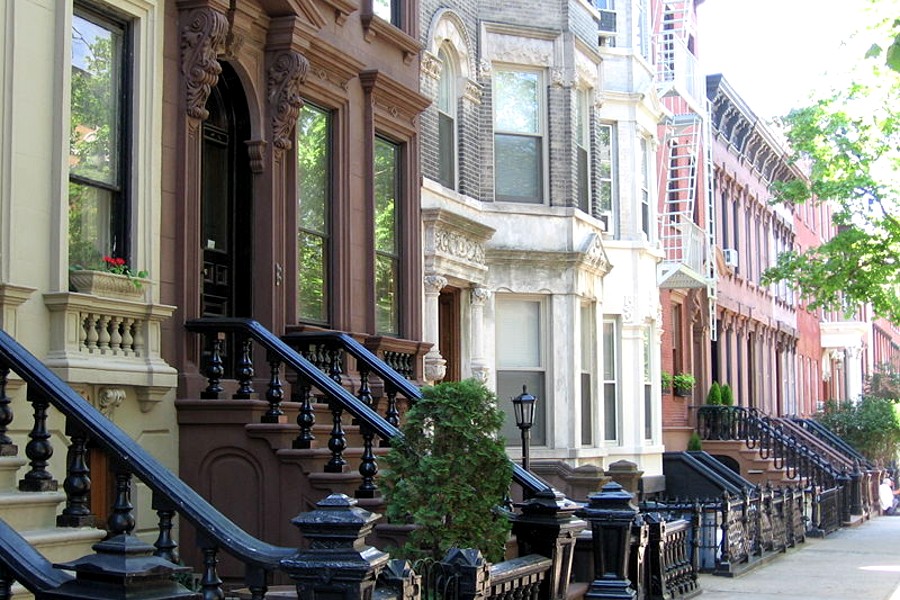
Senator Brian Kavanagh, chair of the Senate Committee on Housing, Construction and Community Development made an announcement today.
The announcement is that the Senate Housing Committee advanced legislation he sponsors, in partnership with Assemblyman Harvey Epstein, that would pave the way for the enactment of local laws legalizing basement and cellar apartments. The bill (S2276/A1075) would authorize New York City to establish a program to convert dwellings in basements and cellars into safe and legal housing.
The bill has the support of Mayor Eric Adams, City Comptroller Brad Lander, and a coalition of groups including AARP New York, the BASE Campaign, Chhaya CDC, Citizens Housing & Planning Council, Cypress Hills Local Development Corporation, Pratt Center for Community Development, Queens Legal Services, the Center for NYC Neighborhoods, Housing Justice for All, and the Regional Plan Association.
Under the bill, New York City would get the local control, legal tools, and discretion it needs to create a program to bring existing illegal basement units into conformance with the state’s safety standards without having to comply with elements of the state multiple dwelling law that have historically inhibited the formalization of these units, including the State’s ban on basement apartments except in very limited circumstances. Currently, the application of the multiple dwelling law to two-family homes that could in theory convert basements to livable apartments would render many conversions prohibitively expensive due to the requirements of the multiple dwelling law.
With the authority provided in the bill, the City would be set to provide relief to homeowners facing penalties for illegal apartments as well as to unprotected tenants under terms it would create through its own legislative process. Thousands of New Yorkers in basement apartments stand to gain strong protections afforded to tenants in legal apartments.
In September of 2021, eleven basement apartment tenants died as a result of flooding in their homes caused by Hurricane Ida. Because they live in unauthorized housing, tenants in basement and cellar apartments are disincentivized from reporting unsafe conditions for fear of losing their homes entirely.
“I am pleased we were able to advance this bill in the Senate Housing Committee, and I will continue to push for this bill until it is signed into law,” said Senator Kavanagh. “As the devastating effects of Hurricane Ida demonstrated more than a year ago now, far too many people are living in dangerous, illegal basement and cellar apartments, and this poses a severe danger to the life and safety of New Yorkers. There is an urgent need to ensure that basement and cellar apartments can be made safe and legal, whenever possible. This legislation provides the City with the tools it needs to bring existing illegal basement units into conformity with the state’s safety standards. It also empowers the Mayor and City Council to develop a thoughtful plan to ensure that there are protections for the residents of these units, many of whom may be hesitant to report unsafe conditions because of their immigration status or the precarious nature of this housing. I thank Assemblymember Epstein for his partnership in sponsoring this legislation, our colleagues in the state legislature for their support, and particularly the members of the Senate Housing Committee who voted to advance this important legislation today. Thanks also to Mayor Adams, Comptroller Lander, the BASE Campaign, and the many advocates who are working to get it enacted.”
“Today we took a critical step forward for residents in basement apartments. By putting these units on a pathway to legalization, we can establish tenant protections for tens of thousands of New Yorkers and add safe and affordable housing to the City’s stock,” said Assemblyman Epstein. “I want to thank Senator Kavanagh, the members of the committee, Mayor Adams, Comptroller Lander, our City Council colleagues, and advocates for their efforts to protect tenants and make basement apartments safe. I look forward to advancing the legislation in the Assembly and getting it signed.”
“Chhaya CDC has been fighting for a pathway to make basements legal and safe for over 15 years. This is an enormously important step towards that goal. With this bill, thousands of vulnerable homeowners and tenants will be able to live in their homes safely. We thank Senator Kavanagh for his leadership in the Senate Housing Committee for his commitment to seeing this bill through and ensuring that basement owners and tenants are protected,” said Annetta Seecharran, Executive Director, Chhaya CDC.
“Basement apartments are a critical, naturally occurring form of affordable housing. Unfortunately, many basement units exist in the shadows, which puts their homeowners and tenants at risk in a variety of ways. The Center for NYC Neighborhoods is pleased to see this legislation has been reintroduced this session and hopes more state senators will join in support. The fact of the matter is, basement legalization would create a reasonable process for homeowners to follow in order to bring their basement spaces up to code. It would also facilitate the installation and access to tools that will make basements safer for residents. Keeping people in homes and safe should be a priority, and the passage of this bill is instrumental to that cause,” said Julian St. Patrick Clayton, Deputy Director of Policy and Research, Center for New York City Neighborhoods.
“Unregulated basement apartments are a pressing health and safety concern, and a predictable result of the current housing shortage – dual crises that disproportionately impact low-income homeowners and tenants. This legislation epitomizes City-State cooperation by empowering New York City to implement practical solutions,” said Howard Slatkin, Executive Director, of Citizens Housing and Planning Council.
“Through our work on the East New York Basement Apartment Conversion Pilot Program, we have seen enormous interest among homeowners to bring basement units into compliance with essential health and safety standards. But we have also seen how prohibitively complex and expensive it is to achieve this compliance under current law. It is long past due to provide a pathway for homeowners to bring these units up to code. This is a matter of affording peace of mind and security to both homeowner and tenant alike. We are pleased to see this bill advance in the Senate Housing Committee and look forward to the Assembly taking up this vital piece of legislation,” said Ryan Chavez, Program Director of the Basement Apartment Conversion Pilot Program at Cypress Hills Local Development Corporation.
“We are pleased to see the Senate Committee on Housing, Construction And Community Development take action on basement apartment safety. Pratt Center has found that these unaccounted-for housing units are concentrated in neighborhoods that are majority people of color and where poverty rates and rent burdens are higher than citywide. The proposed legislation will give New York City the local authority to create a citywide basement conversion program with uniform safety standards, and to ensure safe, decent, affordable housing for vulnerable, mostly low-income tenants and homeowners. As our climate and housing crises grow, the safety of this critical part of the low-income housing stock is more important than ever,” said Sylvia Morse, Policy Program Manager at Pratt Center for Community Development.
Become a Harlem Insider!
By submitting this form, you are consenting to receive marketing emails from: Harlem World Magazine, 2521 1/2 west 42nd street, Los Angeles, CA, 90008, https://www.harlemworldmagazine.com. You can revoke your consent to receive emails at any time by using the SafeUnsubscribe® link, found at the bottom of every email. Emails are serviced by Constant Contact








